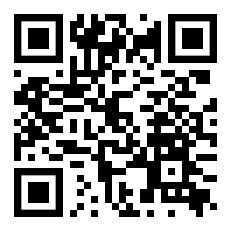The People’s Bank of China unexpectedly cut interest rates. Biden quits from the presidential race
US President Joe Biden has withdrawn from the 2024 presidential election. This came after his supporters turned their backs on him for weeks amid his poor debate performance against former president and Republican nominee Donald Trump. Biden has endorsed Vice President Kamala Harris, who has said she is running for president.
Bitcoin rose to around $68,000 on Monday, hitting its highest level since mid-June. The US bitcoin exchange-traded funds received a total of more than $17 billion in inflows in July, setting a new record. BlackRock’s IBIT and Fidelity’s FBTC were the main contributors, with net inflows of about $19 billion and $10 billion, respectively. Betting on Trump’s second presidency also continued to support digital assets in anticipation of a more favorable regulatory environment for them. Trump is scheduled to speak at an industry conference in Nashville, Tennessee, later this month, and some analysts speculate that he will announce plans to include Bitcoin in the US strategic reserves.
While economic growth in the Eurozone remains sluggish, a dominant service sector driven by tourism is keeping price pressures at uncomfortably high levels. This poses challenges for the ECB, so Wednesday’s PMI data will be closely watched after the Central Bank kept interest rates at 3.75% last Thursday and gave no further guidance, saying it “depends on the data.”
On Friday, oil prices settled at their lowest level since mid-June as investors anticipated a possible ceasefire in Gaza, while a strong dollar also had an impact. The war in Gaza has prompted investors to put a risk premium on oil trading as tensions threaten global supplies. If a truce is reached, Iran-backed Houthi rebels may ease their attacks on commercial ships in the Red Sea as the group has declared support for Hamas.
Asian markets traded without any dynamics last week. Japan’s Nikkei 225 (JP225) fell by 3.85%, China’s FTSE China A50 (CHA50) gained 1.26%, Hong Kong’s Hang Seng (HK50) lost 4.31%, and Australia’s ASX 200 (AU200) was positive 0.15%.
The offshore yuan hit its lowest level in more than a week as traders reacted to the latest decision by the People’s Bank of China (PBoC). In a surprise move, key lending rates were cut to new record lows during the July fixing to support the fragile economic recovery. The 1-year prime rate (LPR), the benchmark for most corporate and household loans, was cut 10 basis points to 3.35%, while the 5-year rate, the benchmark for real estate mortgages, was cut 10 basis points to 3.85%. In addition, the Central Bank initiated a ¥58.2 billion reverse repurchase operation and cut the seven-day reverse repo rate by 10 basis points to 1.7% from 1.8%. The decision came shortly after last week’s third plenum and followed a series of economic data indicating that the economic recovery may be losing momentum.
The Australian dollar fell to $0.668, hitting its weakest level in three weeks, as a sharp decline in energy and metals prices pressured the currency. Australia’s economy relies heavily on commodity exports, making the Australian dollar sensitive to changes in commodity prices.
S&P 500 (US500) 5,505.00 −39.59 (−0.71%)
Dow Jones (US30) 40,287.53 −377.49 (−0.93%)
DAX (DE40) 18,171.93 −182.83 (−1.00%)
FTSE 100 (UK100) 8,155.72 −49.17 (−0.60%)
USD Index 104.37 +0.19 (+0.18%)
News feed for: 2024.07.22
- New Zealand Trade Balance (q/q) at 01:45 (GMT+3);
- China PBoC Loan Prime Rate at 04:15 (GMT+3).
This article reflects a personal opinion and should not be interpreted as an investment advice, and/or offer, and/or a persistent request for carrying out financial transactions, and/or a guarantee, and/or a forecast of future events.
